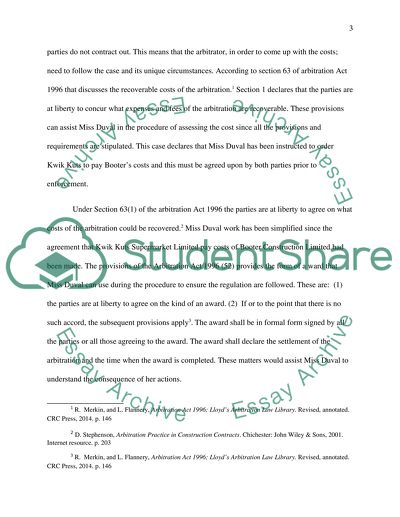Cite this document
(“Costs in Arbitration Proceedings and Tribunals Assignment”, n.d.)
Retrieved from https://studentshare.org/law/1642968-costs-in-arbitration-proceedings-and-tribunals
Retrieved from https://studentshare.org/law/1642968-costs-in-arbitration-proceedings-and-tribunals
(Costs in Arbitration Proceedings and Tribunals Assignment)
https://studentshare.org/law/1642968-costs-in-arbitration-proceedings-and-tribunals.
https://studentshare.org/law/1642968-costs-in-arbitration-proceedings-and-tribunals.
“Costs in Arbitration Proceedings and Tribunals Assignment”, n.d. https://studentshare.org/law/1642968-costs-in-arbitration-proceedings-and-tribunals.


